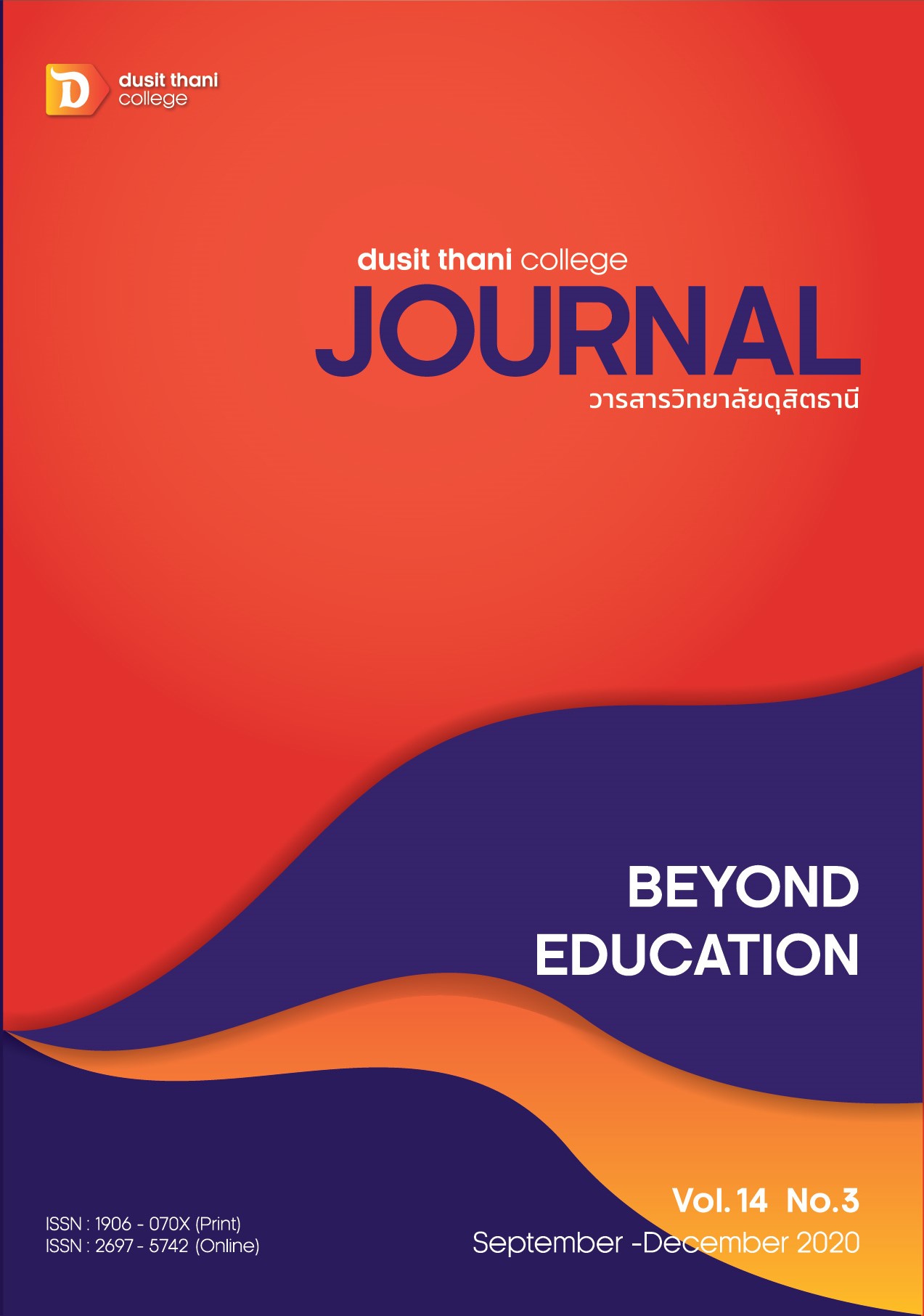System Development for Multistage Adaptive Testing with Feedback in O-NET for The Subject of Grade 12 English Language by Nhabhat Chaimongkol
Main Article Content
Abstract
Computerized adaptive testing (CAT) is a system that uses a computer process to select items that match the ability of examinees. The classical CAT still has some limitations in ability estimation. Therefore, researchers have developed multistage adaptive testing (MST) to overcome the limitations of the classical CAT. This research develops MST for the preparation of Ordinary National Educational Test (O-NET) in English. This is because most students are unable to pass the O-NET exam in English. The results found that the system consists of 5 components 1) initial stage 2) ability estimation 3) item selection 4) stopping criteria and 5) feedback report, contained both the raw score and ability level of each examinee. Finally, the quality of the system is evaluated by experts using standard evaluation and by students using user satisfaction. The results show that the system is of high quality in every dimension and the overall user satisfaction is quite good.
Article Details
Article Screening Policy
- All research and academic articles to be published must be considered and screened by three peer reviews in the relevant field / article.
- All articles, texts, illustrations and tables published in the journal are the personal opinions of the authors. Editors don't always have to agree. And no responsibility whatsoever is the sole responsibility of the author.
- The articles to be published must never be published. Where did you first publish? And not in the consideration of other journals If the audit found that there has been a duplicate publication It is the sole responsibility of the author.
- Any article that the reader sees as being plagiarized or impersonated without reference. Or mislead the work of the author Please let the journal editor know it will be your greatest blessing.
References
Chang, H.-H. (2004). Understanding Computerized Adaptive Testing: From Robbins-Monro to Lord and Beyond. In D. Kaplan (Ed.), The SAGE Handbook of Quantitative Methodology for the Social Sciences (pp. 117). California: Sage Pulblication, Inc.
Chin, J. P., Diehl, V. A., & Norman, K. L. (1988). Development of An Instrument Measuring User Satisfaction of the Human-Computer Interface. Paper presented at the SIGCHI Conference on Human Factors in Computing Systems.
Chaimongkol, N., Pasiphol, S., & Kanjanawasee, S. (2016). Computerized Adaptive Testing with Reflective Feedback: A Conceptual Framework. Procedia - Social and Behavioral Sciences, 217(2016), 806 – 812.
Han, K. T., & Guo, F. (2013). An Approach to Assembling Optimal Multistage Testing Modules on the Fly. Graduate Management Admission Council.
Hattie, J., & Timperley, H. (2007). The Power of Feedback. Review of Educational Research, 77(1), 81-112.
Kanjanawasee, S. (2011). Evaluation Theory (7th ed.). Bankgok: Chulalongkorn University Press.
Kanjanawasee, S. (2012). Modern Test Theory (4th ed.). Bankgok: Chulalongkorn University Press.
Lilley, M., Barker, T., & Britton, C. (2004). The development and evaluation of a software prototype for computer-adaptive testing. Computers & Education, 43(2004), 109- 123.
Mesler, A. (2008). High Stakes and Higher Impacts: The Effects of High-Stakes Testing on School and Classroom Operations. Duke University, Durham, NC. Retrieved from http://uwp.duke.edu/uploads/assets/Mesler_09.pdf.
National Institute of Educational Testing Service (Public Organization). (2019). O-NET score statistics in Grade 12 (2014-2017). Retrieved from https://www.niets.or.th/uploads/editor/files/Download/ช่วงคะแนน%20ม.6.pdf
Patsula, L. N. (1999). A comparison of computerized adaptive testing and multi-stage testing. (Doctor of Philosophy), University of Massachusetts Amherst. Retrieved from https://scholarworks.umass.edu/dissertations_1/3282
Wang, K. (2017). A fair comparison of the performance of computerized adaptive testing and multistage adaptive testing. (Doctor of Philosophy), Michigan State University.
Zenisky, A., Hambleton, R. K., & Luecht, R. M. (2010). Multistage Testing: Issues, Desings, and Research. In W. J. v. d. Linden & C. A. W. Glas (Eds.), Elements of Adaptive Testing: Springer.
Zheng, Y., & Chang, H.-H. (2015). On-the-Fly Assembled Multistage Adaptive Testing. Applied Psychological Measurement, 39(2), 1-15.
Zheng, Y., Nozawa, Y., Gao, X., & Chang, H.-H. (2012). Multistage Adaptive Testing for a Large-Scale Classification Test: Design, Heuristic Assembly, and Comparison with Other Testing Modes: ACT.


